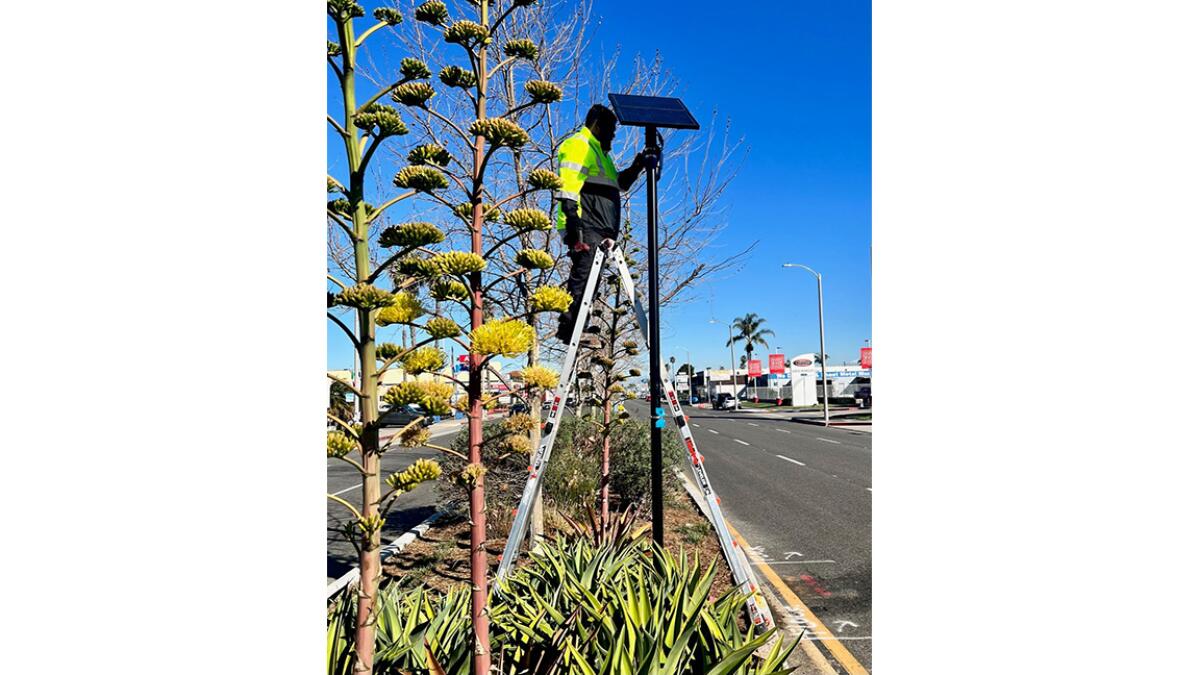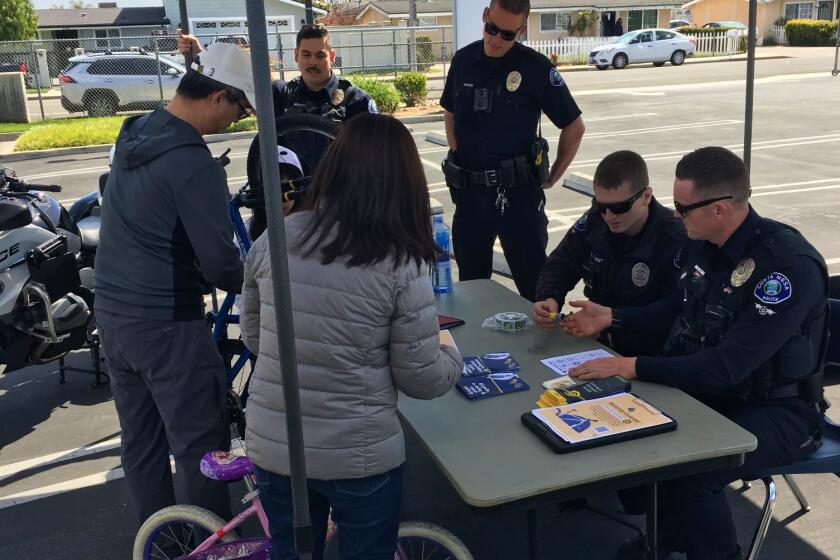Costa Mesa installs automated cameras looking out for suspicious vehicles 24/7

- Share via
Cameras that photograph the license plates of passing cars and automatically alert law enforcement whenever one potentially tied to a crime is spotted have been going up in Costa Mesa since February and have already found several stolen vehicles.
The city signed a $97,600 contract with the surveillance tech company Flock Safety in June. That price includes an initial fee of $10,850 for the installation of 31 automated license plate readers, which cost about $2,800 a year to operate.
As many as 16 had been installed and were up and running by February, Costa Mesa Police Spokeswoman Roxi Fyad said. Crews plan to have all of them set up around May. The plate readers operate 24 hours a day on solar power and can capture plate numbers and photographs of multiple cars and trucks moving at freeway speeds simultaneously.
They are linked to databases shared by police in Huntington Beach, Irvine, Laguna Beach, Newport Beach and 45 other law enforcement departments in Orange, Los Angeles, Riverside and San Bernardino counties. The devices can immediately notify Costa Mesa police if a vehicle flagged by any of those agencies passes by.
“I am excited about using good technology to help our officers solve crimes, recover stolen vehicles and potentially rescue abducted children or save at-risk missing persons, including victims of human trafficking,” Costa Mesa Police Chief Ron Lawrence said. “This important tool has already proven a huge asset to helping us solve serious crimes.”
Locals can register their bicycles for free online or through the “529 Garage” app, issue stolen bike alerts and search a database of recovered bikes already being viewed by police in Newport Beach, Huntington Beach and Irvine.
On March 6, one of the city’s recently installed plate readers spotted a stolen vehicle occupied by a suspect in a burglary that had just happened at a bicycle shop in Santa Ana, Fyad said. A pair of stolen e-bikes were also found and returned to the business.
That was just one of 10 stolen cars or trucks plate readers have helped police since they went online in February, Fyad said. Investigators suspect at least one was taken from a victim in Costa Mesa, while others were possibly related to thefts in Irvine, Hemet and various other locations in and out of Orange County.
Lawrence said the plate readers will “ultimately reduce crime over time.” Proponents of the technology say it acts as a deterrent as well as an investigative tool. It can also help police keep tabs on potential suspects.
But advocates for privacy and mobility rights fear the growth of a broad, automated surveillance network running day and night could be used to track the movements of innocent citizens. Numerous communities throughout Orange County have plate readers discreetly positioned on streetlights and signposts or mounted to vehicles patrolling the streets.
Flock and supporters of the use of license plate readers note that they do not come with facial recognition technology and cannot be used to identify the driver of a car or truck. The data they record in Costa Mesa will be retained for 30 days, per the terms of the city’s arrangement with the company. Every search of the database is logged.
“The Costa Mesa Police Department is transparent about this program with information and policy on the use of ALPRs available on our website,” Fyad said.
The 16 plate readers in Costa Mesa had recorded the plates of 1,179,600 vehicles over a 30-day period in March, according to data available on Flock’s website.
All the latest on Orange County from Orange County.
Get our free TimesOC newsletter.
You may occasionally receive promotional content from the Daily Pilot.





